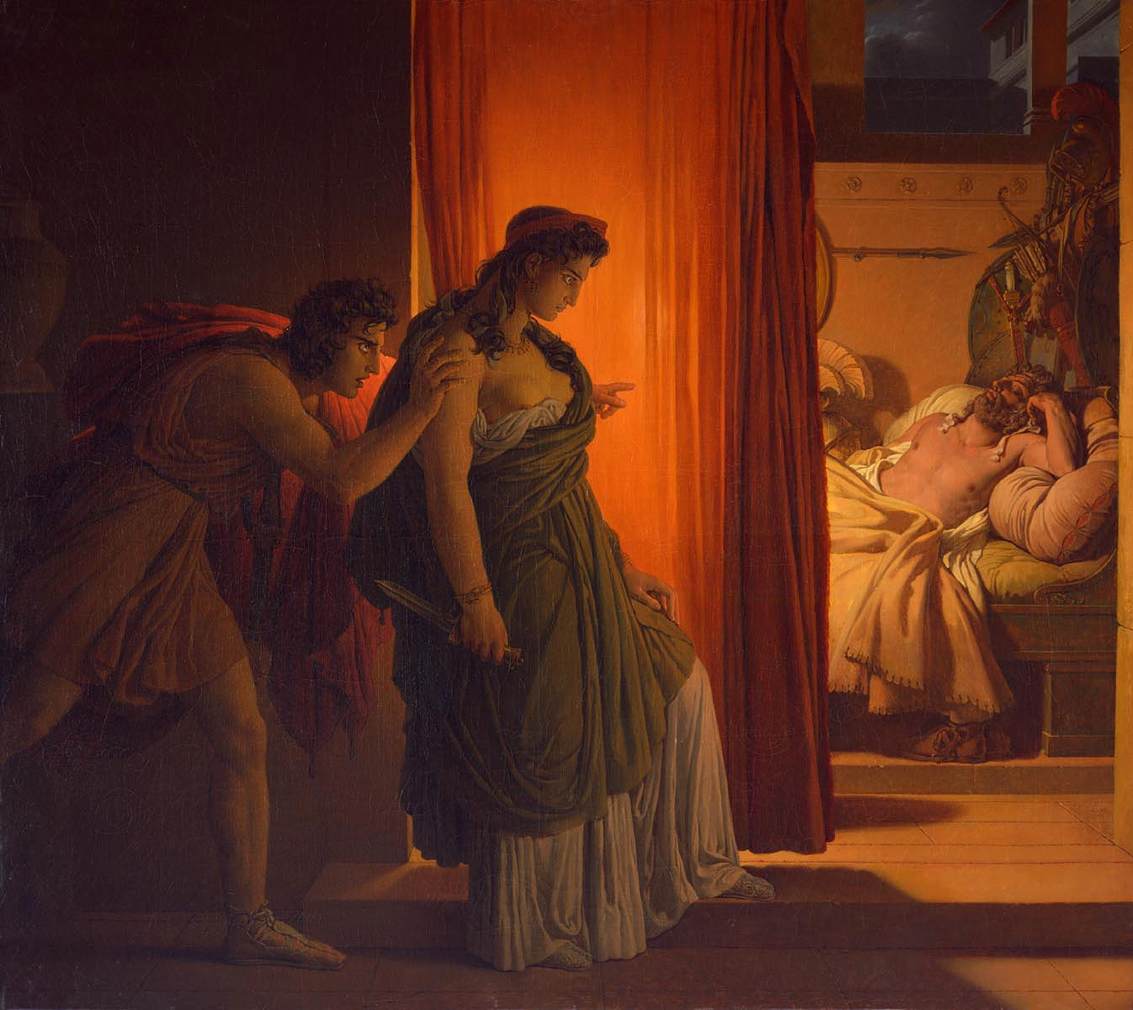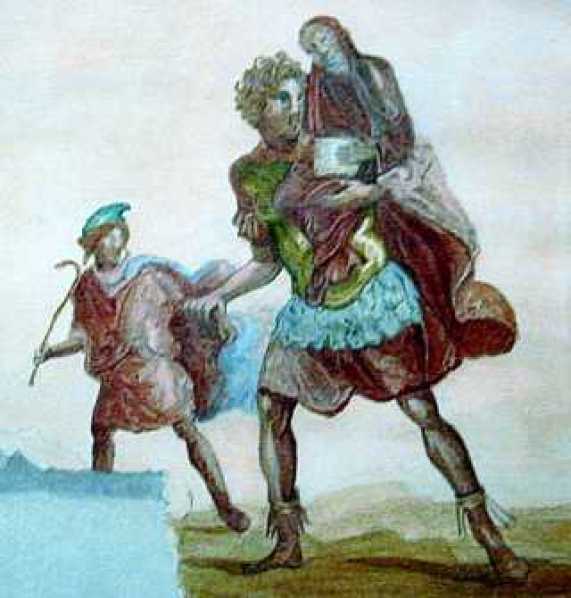Seneca, Thyestes, 1031-1042
Atreus:
You have what remains of your children.
What does not remain, you have that too.
Thyestes:
Which is it: are they sprawled-out food for screeching birds?
Are they being devoured by monsters?
Or are they feed for wild animals?
Atreus:
You’ve dined on your children yourself,
in a profane feast.
Thyestes:
. . . What words suffice for me?
I can make out their cut-off heads, torn-off hands,
feet ripped from shattered legs–
This is what their glutton of a father could not swallow!
Their entrails churn inside me; wrong now locked in me
struggles with no way out, yet seeks escape.
Atreus:
Quidquid e natis tuis
superest habes, quodcumque non superest habes.
Thyestes:
Utrumne saevis pabulum alitibus iacent,
an beluis vorantur, an pascunt feras?
Atreus:
Epulatus ipse es impia natos dape.
Thyestes:
. . . quae verba sufficient mihi?
abscisa cerno capita et avulsas manus
et rupta fractis cruribus vestigia:
hoc est quod avidus capere non potuit pater.
volvuntur intus viscera et clausum nefas
sine exitu luctatur et quaerit fugam.

Man Eating. 2001.
Private collection.
Larry Benn has a B.A. in English Literature from Harvard College, an M.Phil in English Literature from Oxford University, and a J.D. from Yale Law School. Making amends for a working life misspent in finance, he’s now a hobbyist in ancient languages and blogs at featsofgreek.blogspot.com.



